9 Predictions for the Future of Travel
With few facets of our lives and world unchanged by the unparalleled impact of the Coronavirus (COVID-19) pandemic, travel too will be forever re-shaped by this extraordinary moment in time. Innovation within the travel industry will accelerate faster than ever to respond to marked shifts in travel expectations and behaviors. Travellers will look for a heightened level of travel safety and more sustainable travel offerings, as well as evolve their preferences for where and with whom they travel. Newfound appreciation for doorstep delights will endure alongside an abiding love of the far flung, and travellers will find new ways to blur the lines between work and travel. All of which will catapult a demand for deeper value from the trips we book in the future.
Digital travel leader Booking.com has combined research from more than 20,000 travellers across 28 countries and territories with insights from proprietary search and endorsement data as well as over 20 years’ of travel expertise to reveal nine predictions for the future of travel – in 2021 and beyond. With over half (59%) of Canadian travellers responding that they won’t be comfortable travelling until a Coronavirus vaccine or treatment is in place, it may be a long time before we experience the world as freely as we did previously, but the industry will continue to adapt at pace, satiating our appetite to travel whenever it’s safe to do so.

Amidst new waves of travel hiatuses, restrictions and continued uncertainty, our innate human desire to travel has not been dampened. During recent lockdowns, 59% of Canadian travellers reported being excited about travelling again, while 75% indicated they are more appreciative of travel and will likewise not take it for granted in the future. Canadians also report that they plan to take a similar number of trips both domestically and internationally in the 12 months after travel restrictions are lifted in their country, as they did in the year pre-pandemic (March 2019 – March 2020).
Our time at home has made us crave the world outside more than ever with nearly half (46%) of respondents asserting a heightened desire to see even more of the world, and 32% wanting to travel more in the future to make up for time lost in. What’s more, almost a third (30%) intend to plan a trip to make up for a celebration missed due to Coronavirus (such as a milestone birthday or wedding), while 34% intend to rebook a trip they had to cancel. With this, we can expect travel companies to get creative in 2021 with new itineraries and recommendations designed to capture the imaginations of those who missed out on trips in 2020 and who will be looking for somewhere stunning to explore to make their next trip more meaningful.

The financial legacy of Coronavirus will inevitably see people demand more bang for their buck in the future. 62% of Canadian travellers will be more price conscious when it comes to searching and planning a trip in the future and 55% are more likely to hunt down promotions and savings, behaviors that we predict will last years.
But the value consumers expect will go beyond price tags with 78% stating they want travel booking platforms to increase their transparency about cancellation policies, refund processes and trip insurance options. Furthermore, 48% consider refundable accommodation a must-have for their next trip, as do 39% when it comes to the flexibility to change dates without being charged.
And while Canadian travellers are keen to support the industry in its recovery (65%) and want their future bookings to help rebuild communities around the world (60%), they will expect a lot more from the travel industry in return. The industry will need to come together to respond inventively to offer deeper value, better choice, increased flexibility and transparency as well as more thoughtful experiences for tomorrow’s travellers as they scrutinize spend in 2021 and beyond.
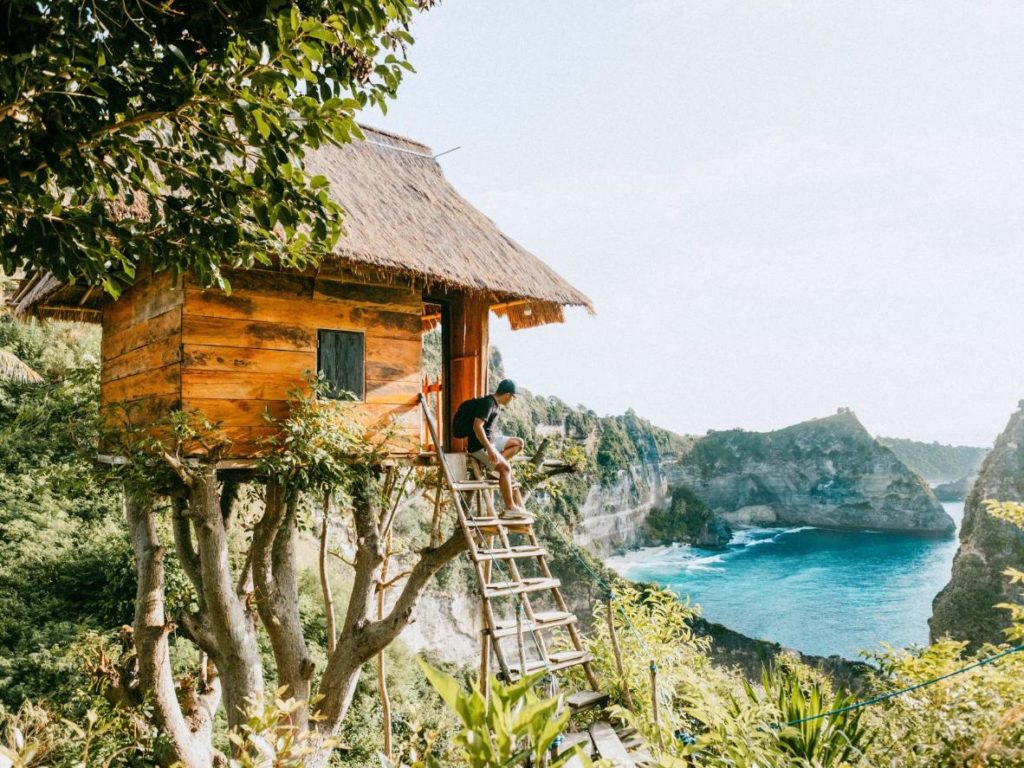
In a new Coronavirus world, local travel has risen to the fore as it remains easier, safer and happily often more sustainable. Looking ahead, staying closer to home and becoming familiarists rather than tourists will continue to be at the forefront of travel agendas. 42% of us still plan to travel within their own country in the medium term (7-12 months’ time), with 35% planning to do so in the longer term (in over a year’s time). When it comes to local travel, 44% plan to explore a new destination within their home region/country and 47% will take the time to appreciate the natural beauty of their home country, while – locally or not, half (56%) intend to travel somewhere they’ve already been previously for its familiarity.
Doorstep delights offer both cost and time savings to which destinations and accommodations will respond by offering more historic and cultural heritage tours to educate and entertain visitors, as well as vying for tourists’ affections through original offerings such as guest chefs and bespoke cocktails. With use of Booking.com’s ‘pet-friendly’ filter more than doubling since the start of travel restrictions, new and furrier breeds of travellers will also increasingly need catering for as we look ahead. All this in turn will fuel a Renaissance of road trips to explore forgotten local gems, a renewed passion to support local business and communities as they seek to rebuild, and inspire a newfound sense of pride in the history and beauty that Canada has in spades.
Canadian travellers will not write off the love of long-haul getaways, though. Appreciation for familiarity will sit alongside enduring love and anticipation of longer-haul travel as almost a quarter (22%) of people intend to travel to the other side of the world by the end of 2021, compared to only 3% by the end of 2020.
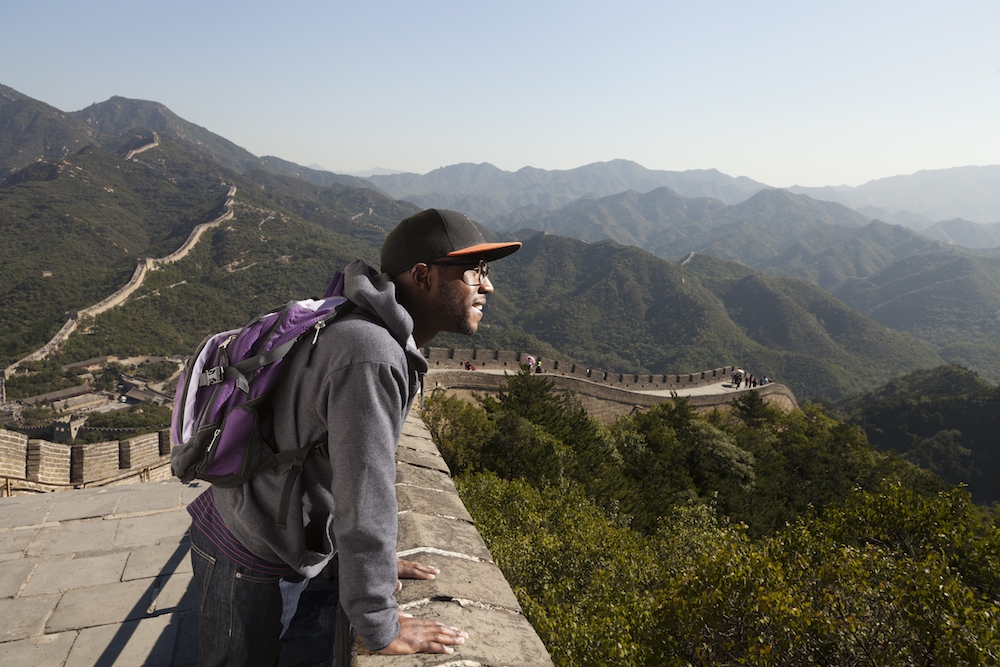
Our appetite to consume travel content, get creative with our travel plans and share our travel dreams with each other will continue to grow exponentially over the coming year. Seeking comfort and distraction during weeks in lock-down, the overwhelming majority (94%) of travellers spent time looking for vacation inspiration, with 27% looking at potential travel destinations as often as once a week. As restrictions continue to ebb and flow, we can expect destinations and accommodations to come up with even more inventive ways to capitalize on travellers’ heightened desire to escape reality and connect them with the experiences that await – from accommodations revamping their social media presence by leveraging content created by influencers who visited pre lockdown, to local tourist boards creating inspiring Computer Generated Imagery (CGI) content to visually showcase the best these places have to offer.
Yet, social media is not the only source of inspiration for Canadians when day-dreaming about their next trip, with 32% also opting to have a good old-fashioned chat with friends and family to spark their travel creativity. In addition, 30% of people feel nostalgic looking through old photographs from previous vacations to help them decide on a future trip, recognizing that analog inspiration will also have a recognizable resurgence on our social media feeds. While we will see heightened mindfulness about how, where and when we share our travelling experiences in a more restricted and evolving environment, the benefits we derive from exchanging stories, when it’s been safe to travel, will fuel new trends in sharing and connecting. Think fab new takes on vintage vacay pics and seamless, innovative ways for us to share tips for their entire trips with interactive, shareable itineraries for their friends and families.
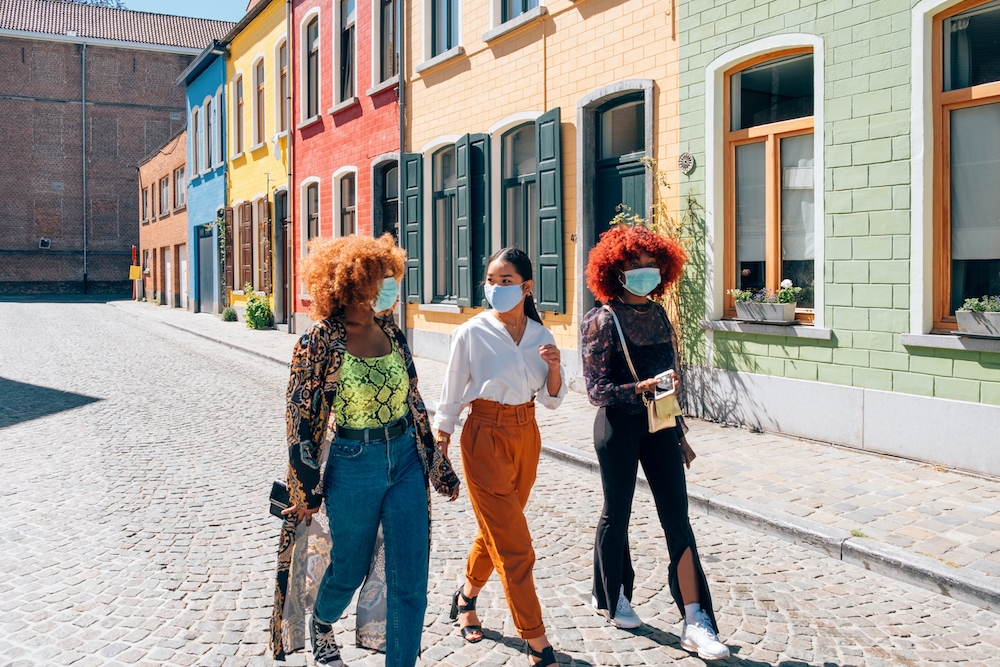
Canadian travellers (84%) will take more precautions due to Coronavirus and will look to the travel industry to help them gear up for this new normal. Governments, travel associations and providers will have to work cohesively to set consistent standards to help keep travellers safe, and with expectations heightened, some destinations and businesses will need to work harder to regain travellers’ trust. 68% of travellers will avoid certain destinations, and 74% expect tourist attractions to adapt to allow for social distancing. At the same time, 76% will only book a particular accommodation if it’s clear what health and hygiene policies it has in place, with 80% favoring accommodations that have antibacterial and sanitizing products.
Short-term there will also be a change in transport preference and provisions, with more than half (53%) opting to avoid public transport for fear of contracting Coronavirus. This will cause a longer-term shift in how people will travel to and around their vacation destinations, with more people choosing to rent or drive their own car. The ‘new normal’ will also see travellers prioritize and adhere to increased health and safety measures, with many becoming second nature sooner than we think. Just as we have become accustomed to travelling without liquids in our carry on luggage and removing shoes to go through airport security, two-thirds (65%) will accept travelling to destinations that have health spot checks on arrival and 57% will accept wearing a mask in public. Quarantine measures will remain less popular with far fewer (27%) Canadian travellers willing to accept these in order to travel to a particular destination.
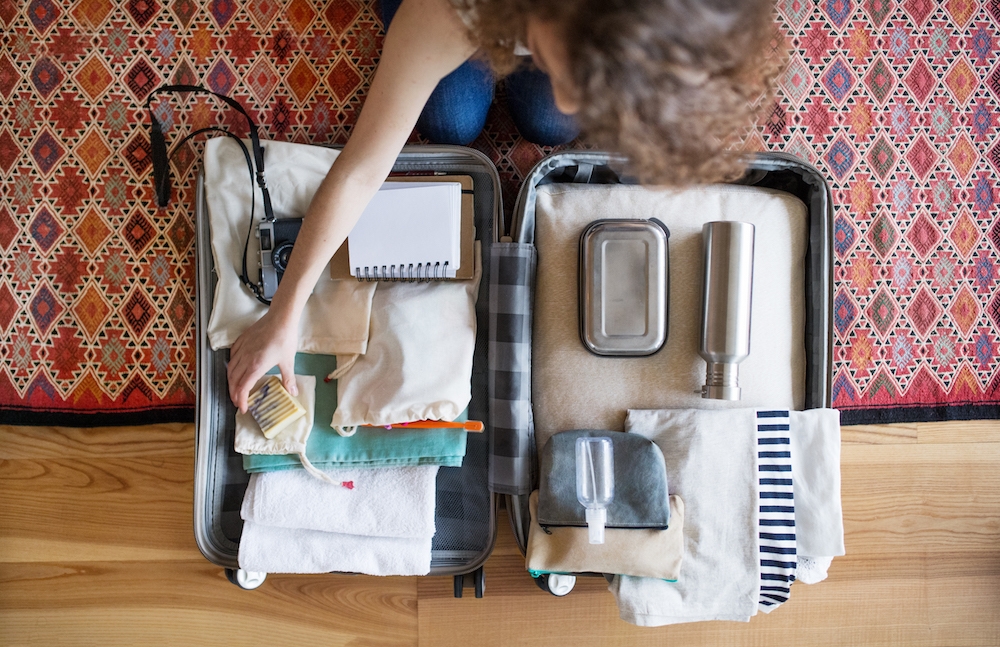
As 42% of Canadian travellers reported want to travel more sustainably in the future, we expect to see a more eco-conscious mindset in 2021 and beyond, as Coronavirus has amped people’s awareness about their impact on the environment and local communities. 64% expect the travel industry to offer more sustainable travel options and travellers will consequently visit alternative destinations in a bid to avoid travelling during peak season (45%) and overcrowding (46%). This desire also means that 68% will stay away from crowded tourist attractions, indicating that destinations will need to adapt new, smart crowd management measures to appease Canadians visiting their country.
Additionally, the impact of Coronavirus has inspired more than half (52%) of Canadians to consider reducing waste and/or recycling their plastic when travelling once all travel restrictions are lifted, showing that people are not just committed to protecting themselves, but also the places they visit.
Canadian travellers believe that the industry must adapt to this sustainable mindset for the long-term by offering more attractive off-season travel packages (48%) and proposing alternative destinations to prevent overcrowding (35%). There are also strong signals for travel operators to be more transparent about how travellers’ money is being used to rebuild a community, paving the way for more regenerative tourism. 60% of respondents indicate that they want their travel choices to also support the destination’s recovery efforts, and almost half (48%) want to see how their money is going back into the local community.
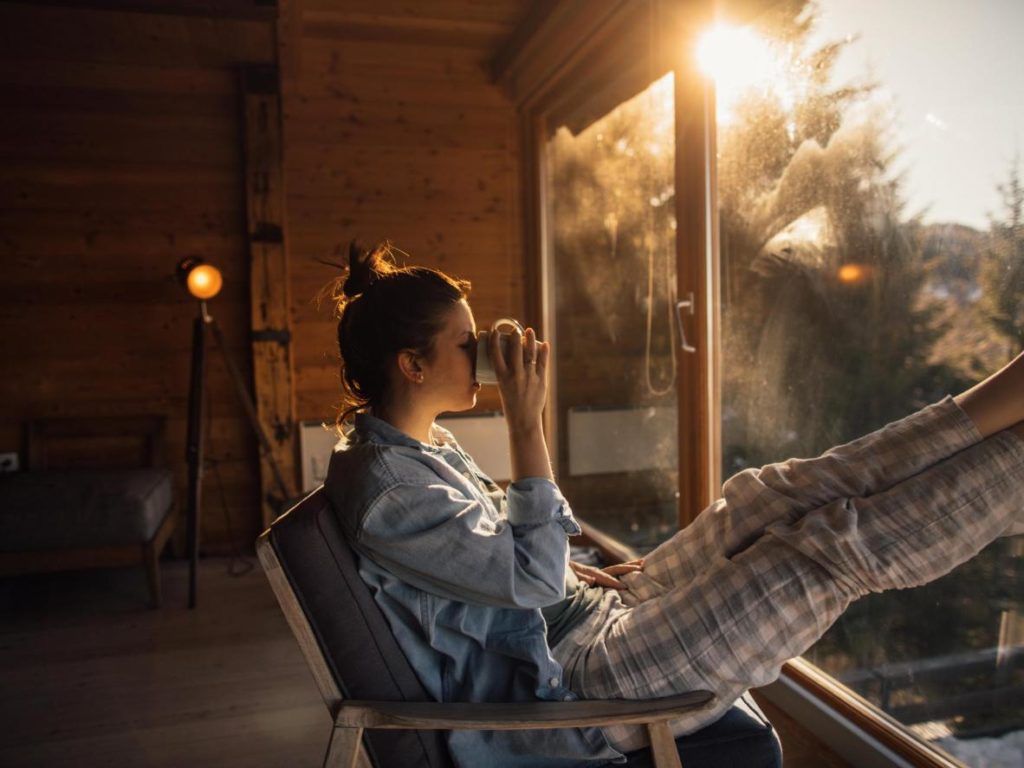
Working remotely has irreversibly entered the mainstream during the pandemic with the added effect that people will look to take longer trips in the future that more effectively combine work and pleasure than ever before. No longer confined to five days a week in an office and desperate for a change of WFH, we’ll see a significant rise in the “Workcationâ€, with travellers looking to extend their vacation experience in new locales by staying an extra week or two to work remotely – or conversely factoring holiday around a stint of remote working. Expect laptops to become even more of a mainstay in luggage than ever before, and an attractive spot on which to rest them a must-have when choosing where to stay.
A third (33%) of Canadian travellers have already considered booking somewhere to stay in order to work from a different destination, while 43% would be willing to quarantine if they could work remotely. Travel platforms and places to stay will prioritise showcasing home office facilities and Wi-Fi speed in an attempt to attract this new wave of digital nomads. Likewise, the world of corporate travel will see increasing demand for privacy, cleanliness and longer stays among those travelling for business, requiring alternative accommodations to seriously up their ‘work-friendly’ game. While companies will undoubtedly reassess their approach to business travel in the future, workers will continue to maximise the trips they do take, with 50% of Canadians saying they would take the opportunity to extend any business trips to also enjoy leisure time at the destination.
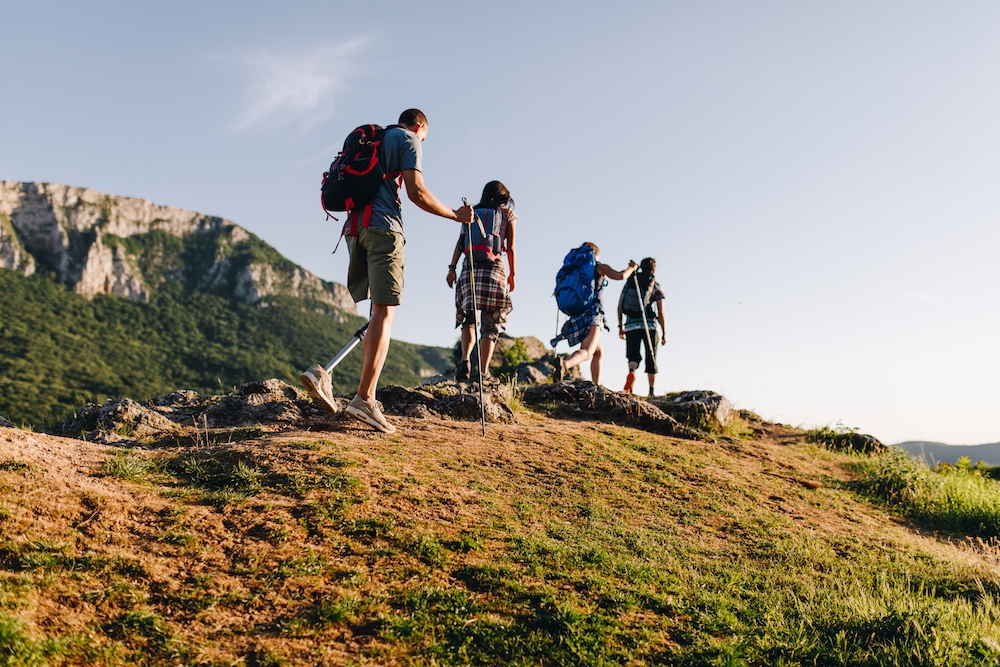
As we learn to live with the consequences of the pandemic in 2021 and beyond, we will be keen to embrace a new and stripped-back way of experiencing the world. So much time spent in our own homes with our loved ones has given birth to adjusted travel priorities and a desire to enjoy more of our natural resources. Use of simple pleasure-related endorsements such as hiking (94%), clean air (50%), nature (44%) and relaxation (33%) on Booking.com have increased since the start of the pandemic, while research shows that almost three quarters of Canadians (73%) will look to appreciate more simple experiences such as spending time outdoors or with the family while on vacation. Over half (57%) will seek out more rural, off-the-beaten-track experiences to immerse themselves into the outdoors.
Considering the renewed emphasis on privacy, sufficient space and personal control over cleanliness and hygiene, it is not surprising that we will see travellers look for accommodation ‘closer to home’ with 34% preferring to stay in a vacation home or apartment rather than in a hotel. 50% will opt to eat in more as opposed to eating out at restaurants, so a well-equipped kitchen will be essential for any vacation rental in the future. Relaxing trips will also be high on the travel agenda in the ‘new normal’, with 50% saying it was their preferred type of trip followed by beach breaks (36%) and city trips (24%).
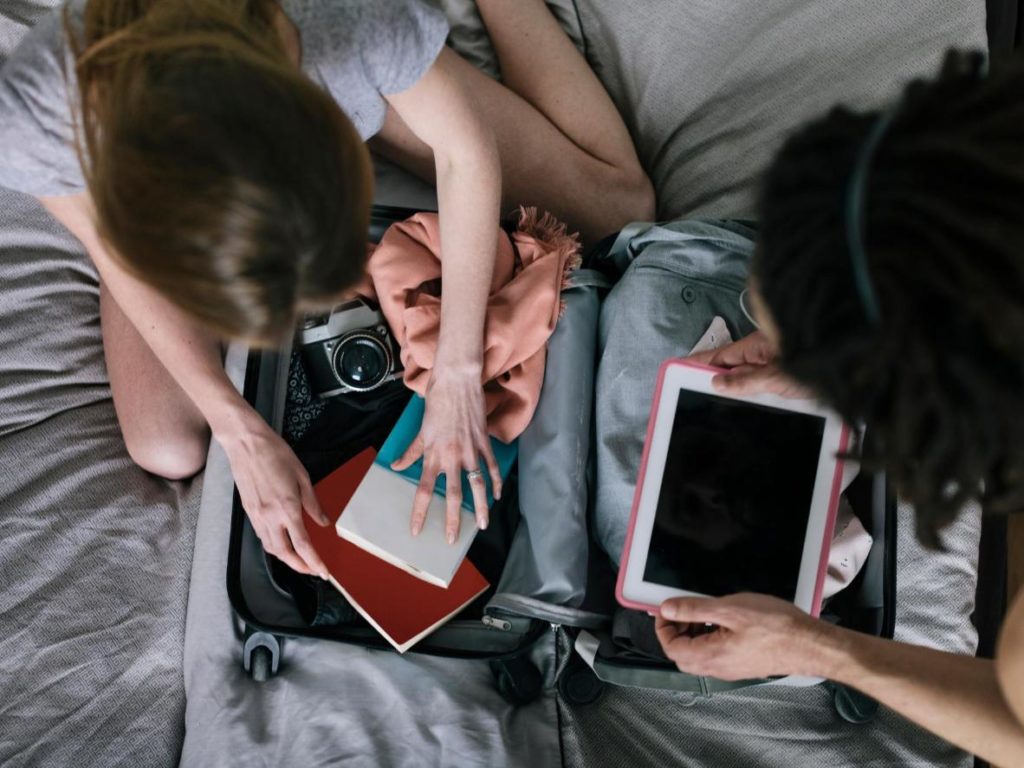
Tech innovation will play a crucial role in rebuilding traveller confidence and we will see the accelerated use of tech to adapt to a new type of traveller. Tech will help us regain the spontaneity, confidence and ease of times past, while at the same time help people travel safely and responsibly. Already, 67% of Canadian travellers agree that technology will be important in controlling health risks when travelling and 65% say that accommodations will need to use the latest technologies to help us feel safe. 45% will want tech options to make last-minute restaurant reservations and 50% will want more self-service machines instead of ticket desks. More than half (51%) are also excited about tech’s potential to further personalize their travel experiences in the future. This reliance on technology will only continue to grow as tech proves its worth and becomes more and more ingrained into our travel experiences.
The innovations we’ll see next will bring even more change, with enhanced online experiences influencing future travel behavior and planning. Almost a quarter (29%) would feel more comfortable about going to an unknown destination if they could scout it out beforehand by using virtual reality (VR). That being said, the real thing reigns supreme with only 24% expecting to participate in more virtual/online experiences run by tourist attractions, local tours and workshops, proving that while we trust technology implicitly to bring us more convenience, personalization and peace of mind, its prime role will reside in being a conduit for, rather than a replacement (yet), for seeing, feeling and tasting it for yourself.
“2020 has been a year like no other and while it will be some time before travel returns to pre-pandemic levels, all signs point to the fundamental and enduring role that travel plays in all our lives. It continues to bring moments of joy and inspiration to people across the globe during times of uncertainty, whether through dreaming and planning, or cherishing the trips we have been able to take. Enhancing our understanding of one another and our common desire to explore beyond the horizon, I believe that travel has a unique potential to come back stronger than ever in the years ahead as a primary driver of growth, equality and prosperity for people everywhere. In the meantime, with our mission to make it easier for everyone to experience the world, we will be there for our customers offering the widest choice, great value and the easiest experience from anywhere and on any device so Canadians can enjoy all of the unforgettable experiences this world has to offerâ€, says Arjan Dijk, Senior Vice President and Chief Marketing Officer at Booking.com.